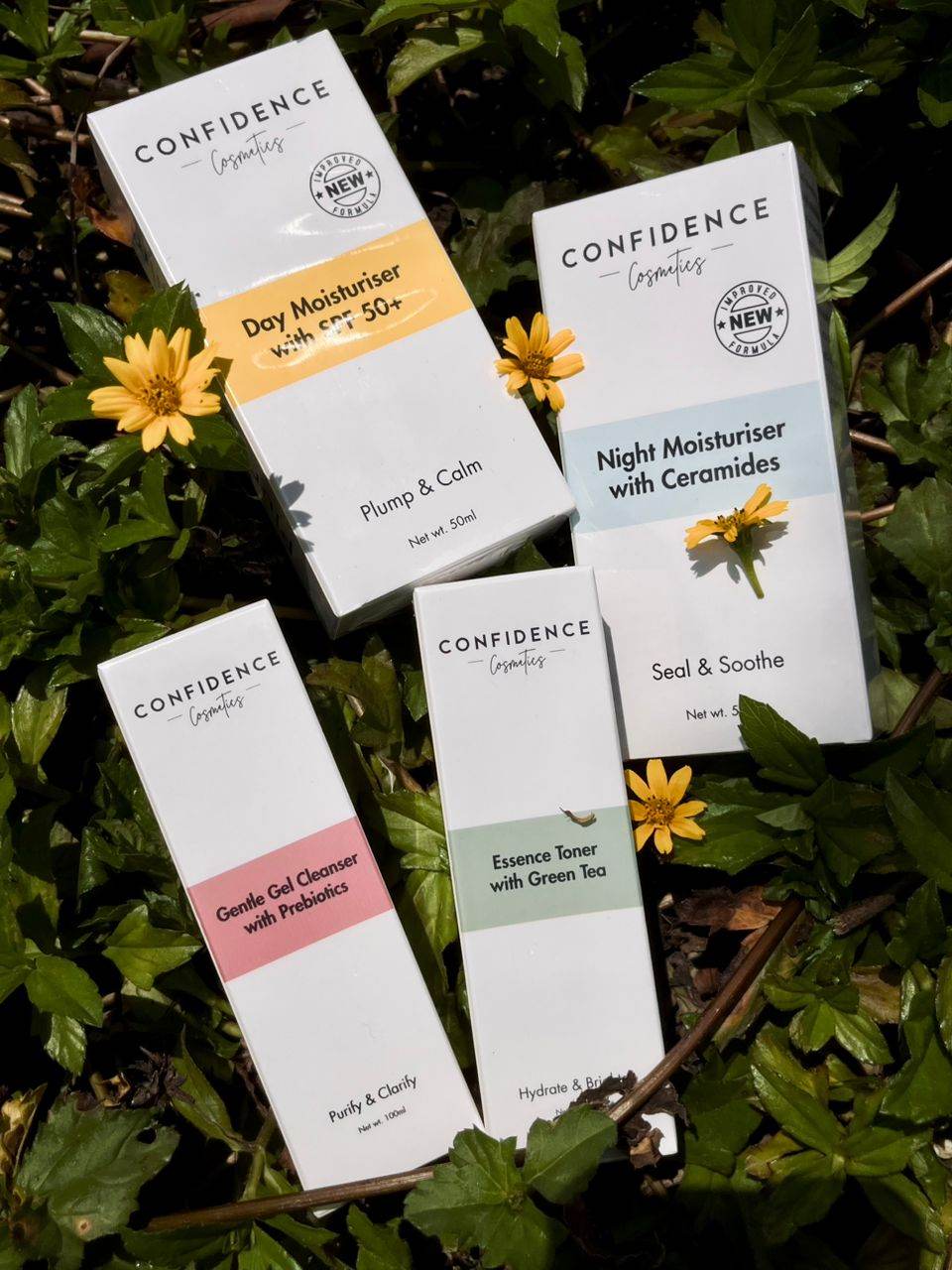Fixing acne-prone skin involves a combination of proper skincare, lifestyle changes, and, in some cases, consultation with a dermatologist. The approach can vary depending on the severity of your acne, but here are some general steps you can take to help improve your skin:
- Establish a Consistent Skincare Routine
Gentle Cleansing : Use a mild, non-comedogenic cleanser to wash your face twice daily (morning and night) to remove dirt, excess oil, and makeup without over-drying your skin.
Acne-Fighting Products : Incorporate products with active ingredients like benzoyl peroxide, salicylic acid, or alpha hydroxy acids (AHAs) into your routine. These can help unclog pores and reduce acne breakouts. Start with lower concentrations and gradually increase as tolerated.
Moisturize : Even if you have oily skin, it's essential to use a non-comedogenic (non pore clogging) moisturizer to keep your skin hydrated. Dry skin can exacerbate acne. A plus point is having calming and hydrating ingredients in your moisturisers such as Centella Asiatica, Aloe Vera and Ceramides to calm irritation caused by active breakouts.
Sun Protection : Always use a broad-spectrum sunscreen with at least SPF 30, as some acne treatments can make your skin more sensitive to the sun. Go a step further by incorporating a day moisturiser that already has a minimum of SPF 30 to give your skin extra hydration while protecting your skin from UVA and UVB rays.
- Hands Off
- Avoid touching your face, picking, or squeezing pimples. Our hands carry a lot of bacteria that can potentially lead to scarring and worsen acne.
- Diet and Hydration
- Maintain a balanced diet rich in fruits, vegetables, lean proteins, and whole grains. Some individuals find that dairy and high-glycemic foods can trigger or worsen acne, so consider reducing your consumption of these if you suspect a connection.
- Stay well-hydrated by drinking plenty of water to help keep your skin hydrated from within.
- Manage Stress
- High stress levels can contribute to acne flare-ups. Practice stress-reduction techniques like deep breathing, meditation, or yoga.
- Sleep and Exercise
- Aim for 7-9 hours of quality sleep per night. A lack of sleep can lead to increased stress and inflammation, which may exacerbate acne.
- Regular exercise can help improve blood circulation and reduce stress. Just be sure to shower and cleanse your face afterward to remove sweat and bacteria.
- Avoid Harsh Products
- Skip products with harsh ingredients, excessive fragrances, or alcohol, as they can irritate and worsen acne-prone skin.
- Consult a Dermatologist
- If over-the-counter products don't improve your acne, consider seeing a dermatologist. They can prescribe stronger topical or oral medications, such as antibiotics, retinoids, or birth control pills (for hormonal acne).
- Dermatologists can also perform procedures like chemical peels, microdermabrasion, or laser therapy to treat acne and acne scars.
- Patience and Consistency
- It's important to be patient and consistent with your skincare routine. Results may take several weeks or even months to become noticeable.
Remember that what works for one person may not work for another, so it may take some trial and error to find the right combination of products and treatments for your specific skin type and acne condition. It's also crucial to consult with a healthcare professional, such as a dermatologist, to develop a tailored treatment plan for your acne.


